
Development of Kingston was held back somewhat in the 1800s because the Puget Mill Company owned much of the land surrounding Apple Tree Cove. Eventually, Kingston lots were put on the market. This photo shows the town circa 1890.
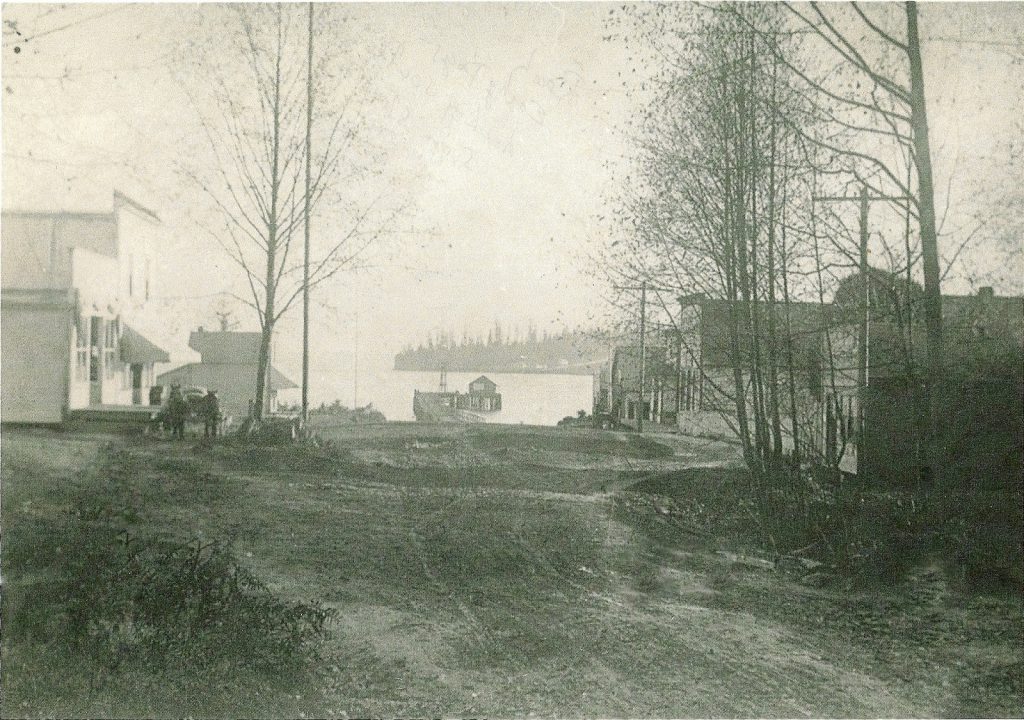
Central Avenue can be seen in this 1918 photo, prior to establishment of the port district. The photo shows the pier where Mosquito Fleet boats docked. On the left is Breakey’s store, with a wagon filled with supplies parked out front.
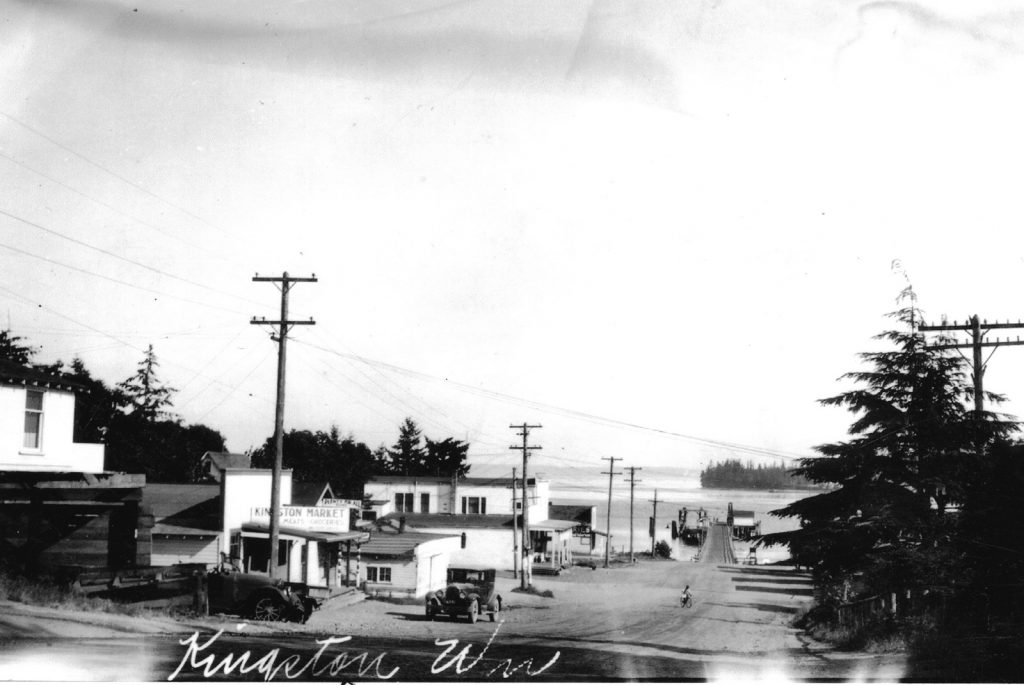
A quiet downtown Kingston is pictured here in the early 1920s in-between ferry sailings, when no cars are lined up. On the left is Kingston Market Meat & Groceries with the slogan “Plenty for All.”
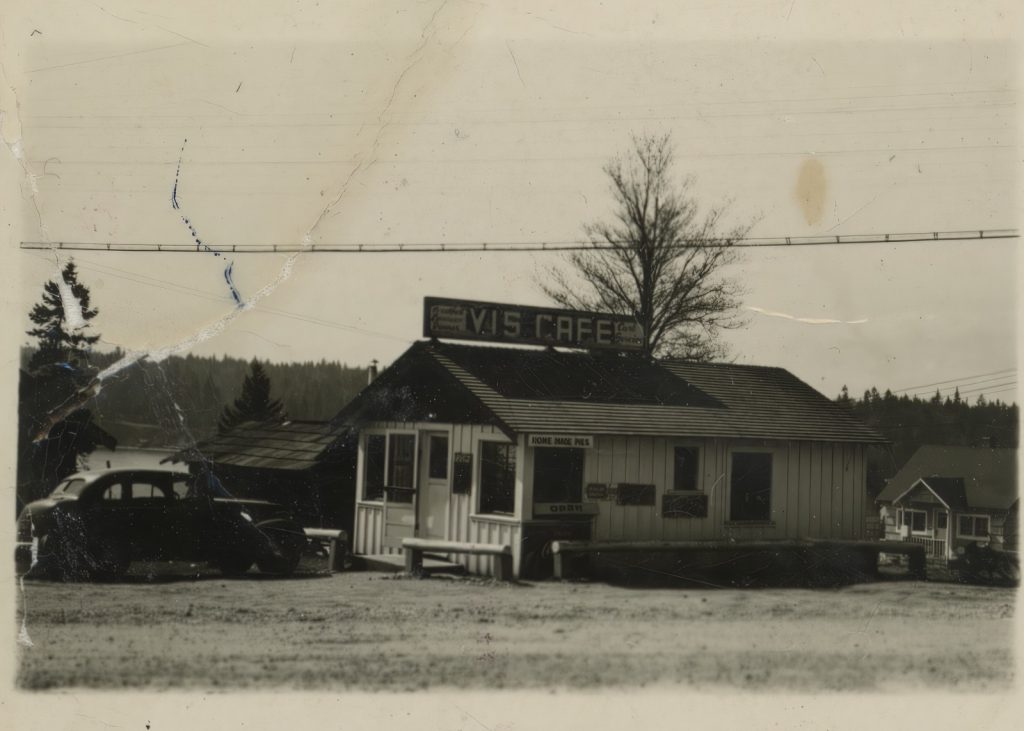
The historic building that now houses Sweet Life Cakery was built in 1930. The cottage functioned as Vi’s Café, an eight-stool café owned by Vi and Charlie West in the 1950s.
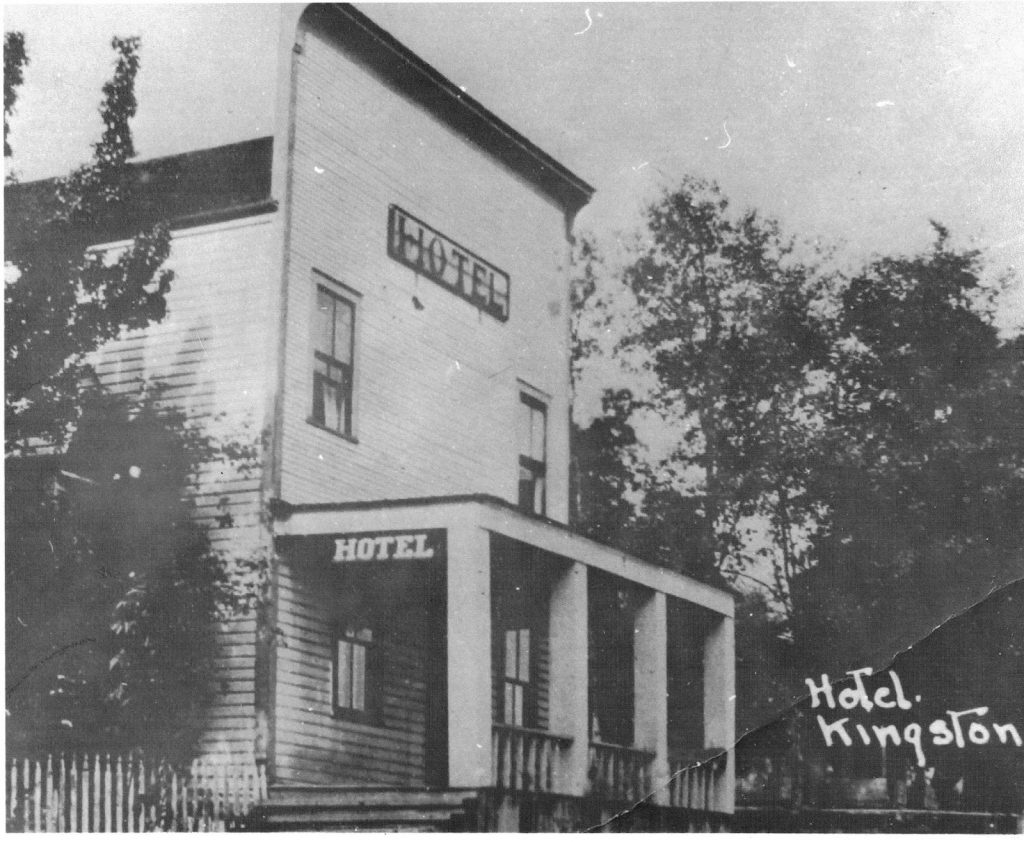
In 1900, R O Worthington moved west from Kentucky with his wife and three children. He purchased the Kingston Hotel around 1907. The 1910 census lists Worthington as a widowed hotel proprietor, living with one daughter and the hotel cook, Cora Carry. In 1913, Worthington and his second wife renovated the 1890 hotel by adding indoor bathrooms and a raised porch, as shown in this 1925 photograph. Cora Carry, a former slave and Kingston’s first Black resident, does not appear on the 1920 census. Antoine and Tania Issa bought the hotel in 2016.
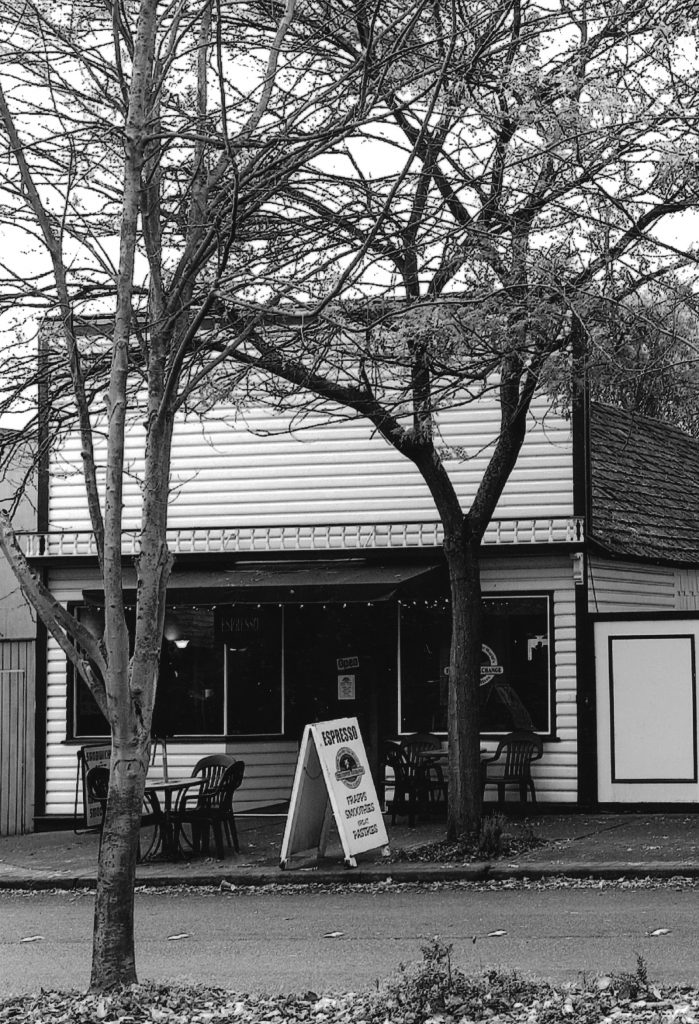
Some of Kingston’s early structures have housed multiple tenants. This building was built in Seattle in 1873, it was brought by boat to Apple Tree Cove. The building was moved into town in 1906 and functioned as Hyggen’s general store. It later became a beauty parlor operated by Alfie Williams. Randy and AnneMarie Olson remodeled it in 1993.
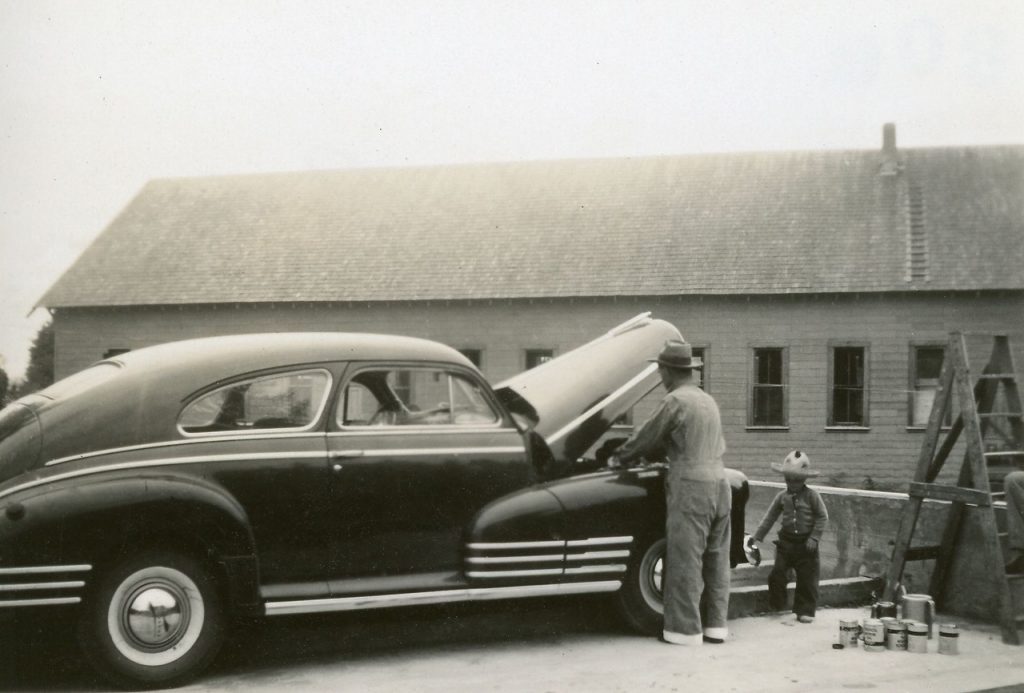
For a time, the Smiley family hosted a large bonfire on Halloween in a vacant lot on California Avenue. Mary Smiley would give each child a free hot dog and cola, and Sam Arness would contribute large stumps to keep the bonfire burning. In this picture, Robert P Smiley and his son Bob are working on an automobile in front of Kingston Community Center, near California Avenue. The building was eventually torn down and a fire station was built on the land.
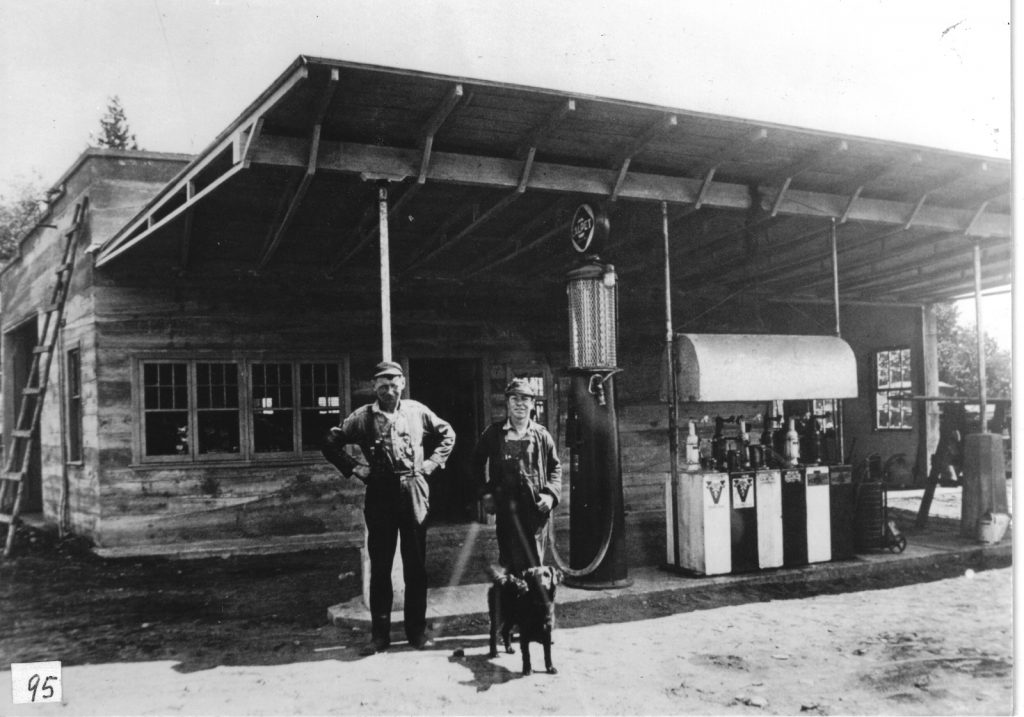
Bob Lair, the village “Smithy,” was a renown storyteller, blacksmith, and machinist. He also operated a gas station in the 1920s that Ralph H Carlaw remodeled in the 1930s. It became Paul Nichol’s Farm Store in the 1950s and the Holding Lane Tavern in the late 1990s. It is now the Filling Station Bar and Grill. Lair is at left with his trusted dog, Blackie, and Cecil VanKeuren.